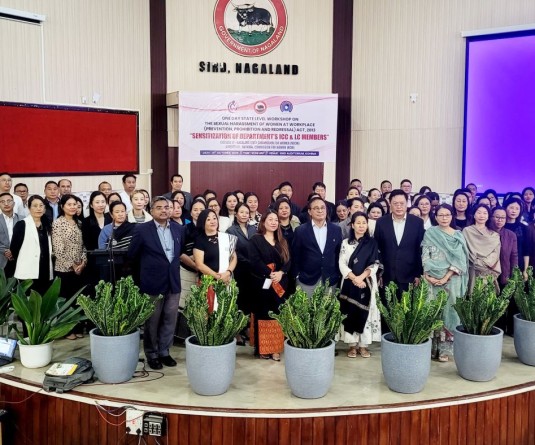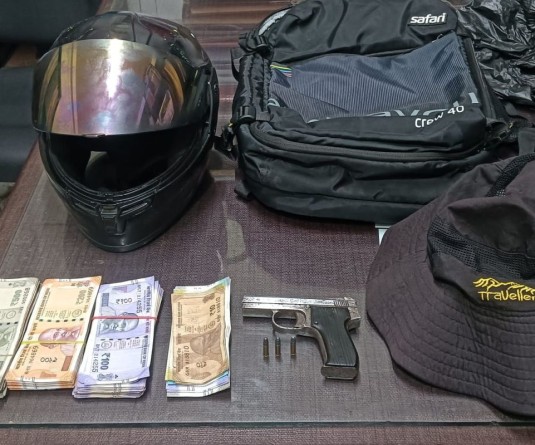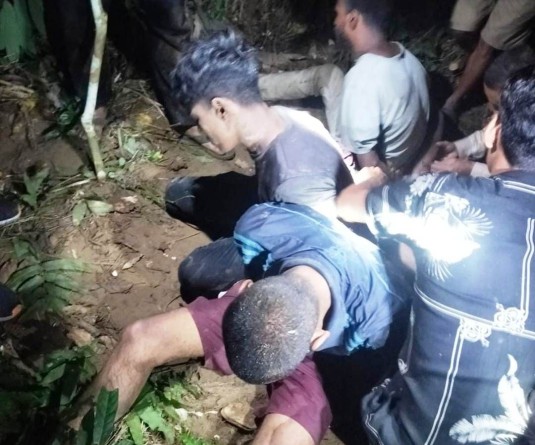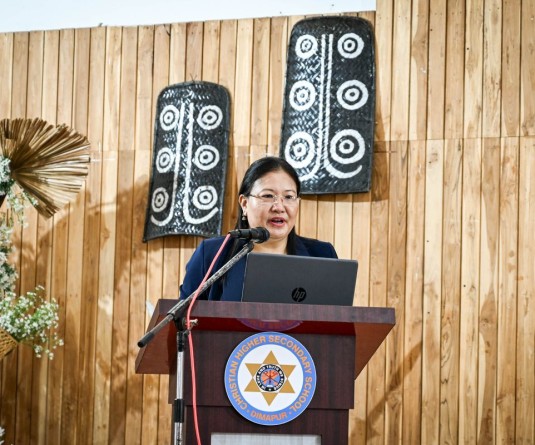Dzülhami cultural troupe Kohima performs Pheta at the ‘Tribal Festival’ in Kohima on October 26. (Morung Photo)
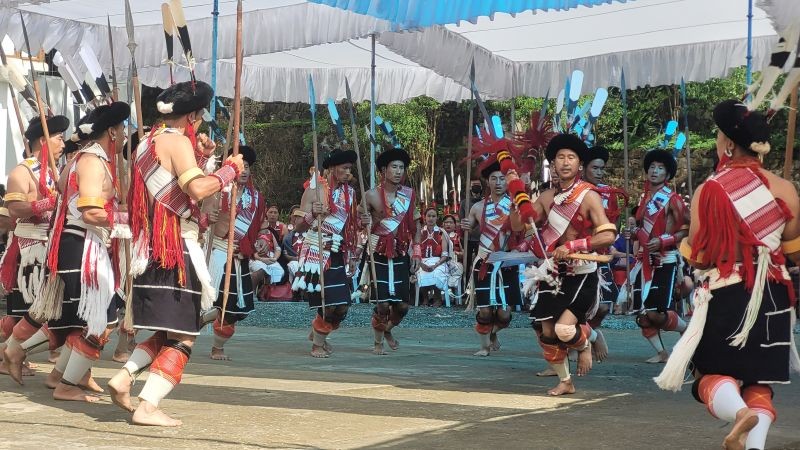
Our Correspondent
Kohima | October 30
Representing the Chakhesang community, Dzülhami Cultural Troupe Kohima performed Pheta at the recently concluded ‘Tribal Festival’ in Kohima on October 26 last, which was organized by the Department of Art & Culture, Nagaland.
Advent of the cultural dance – Pheta
The cultural dance was brought to Dzülha village during the British Expedition to the Kuki areas of Burma (Kotsariwhü), which took place during the 1880s, that saw a transformation which forever altered the cultural heritage of the Dzülha people.
The Dzülhamis had accompanied the Britishers as Labour Corps (Tüpho Thokro) during the expedition.
On their return journey, the Dzülhamis saw the menfolk of Meluri (Mülomi) dancing to a folk song, which was said to be learned from the Burma Nagas, during a festival.
They were fascinated by the fine and subtle movements of the dancers and decided to take back with them knowledge of the dance.
The dance, ‘Mülophe (Meluri Dance)’ as it was called back in the day, was later on refined by the Dzülha village dancers, and is now known as – Pheta (or Aho, as it is called & recognised by the Central Government of India). The dance has gradually spread to other villages and areas.
The cultural dance (Pheta) is usually performed during special festivals and important occasions.
About Dzülha Cultural Troupe
The Dzülha village dance troupe had the privilege of being the first cultural troupe to represent Nagas under the banner of NHTA (Naga Hills & Tuensang Area) in the Republic Day Celebration in New Delhi in 1961.
A 40-member troupe was invited to New Delhi for a TV recording session for Doordarshan channel on 12th-18th February, 1996.
A 19-member troupe participated in the All India Tribal Festival for National Integration at Himachal Pradesh on August 7 to 17, 1996.
The dancing troupes from the village had also participated on many occasions in and outside of Phek District representing the District and the Nagas as well, according to Valengoyi Shijo, chairman, Dzülhami Welfare Union, Kohima.


